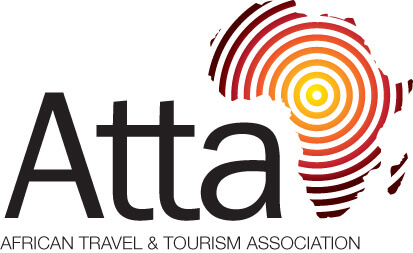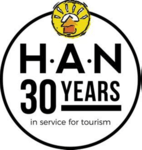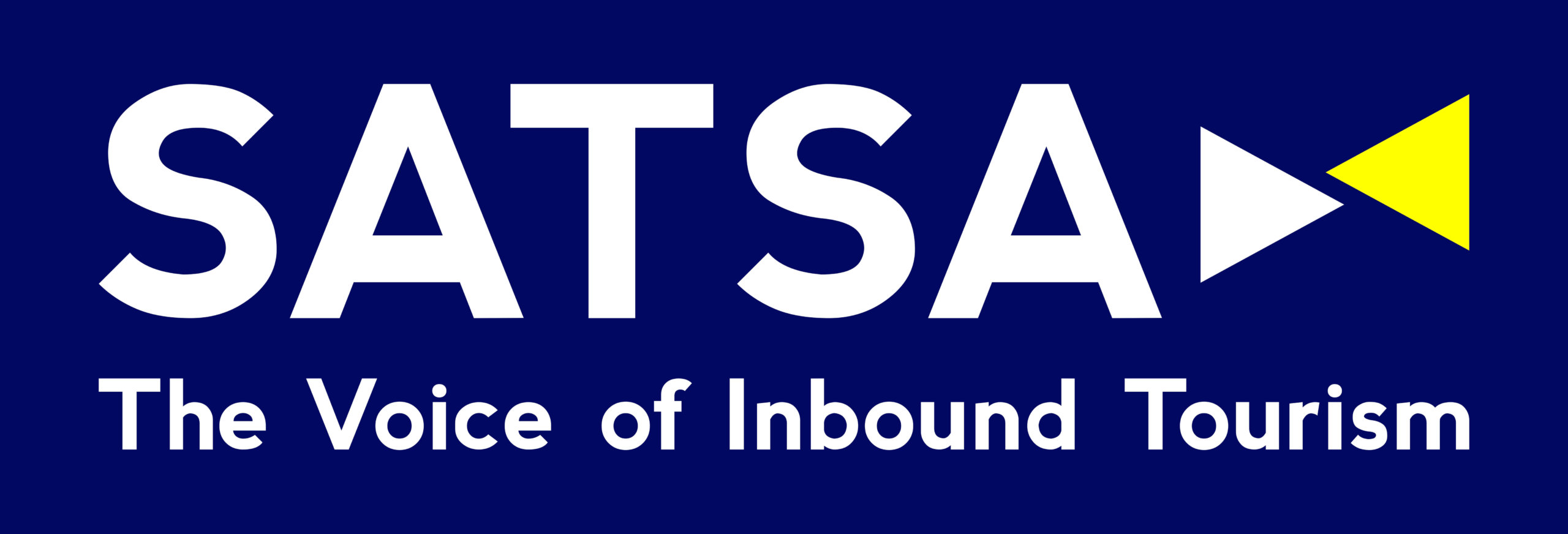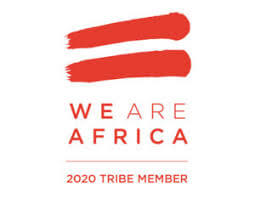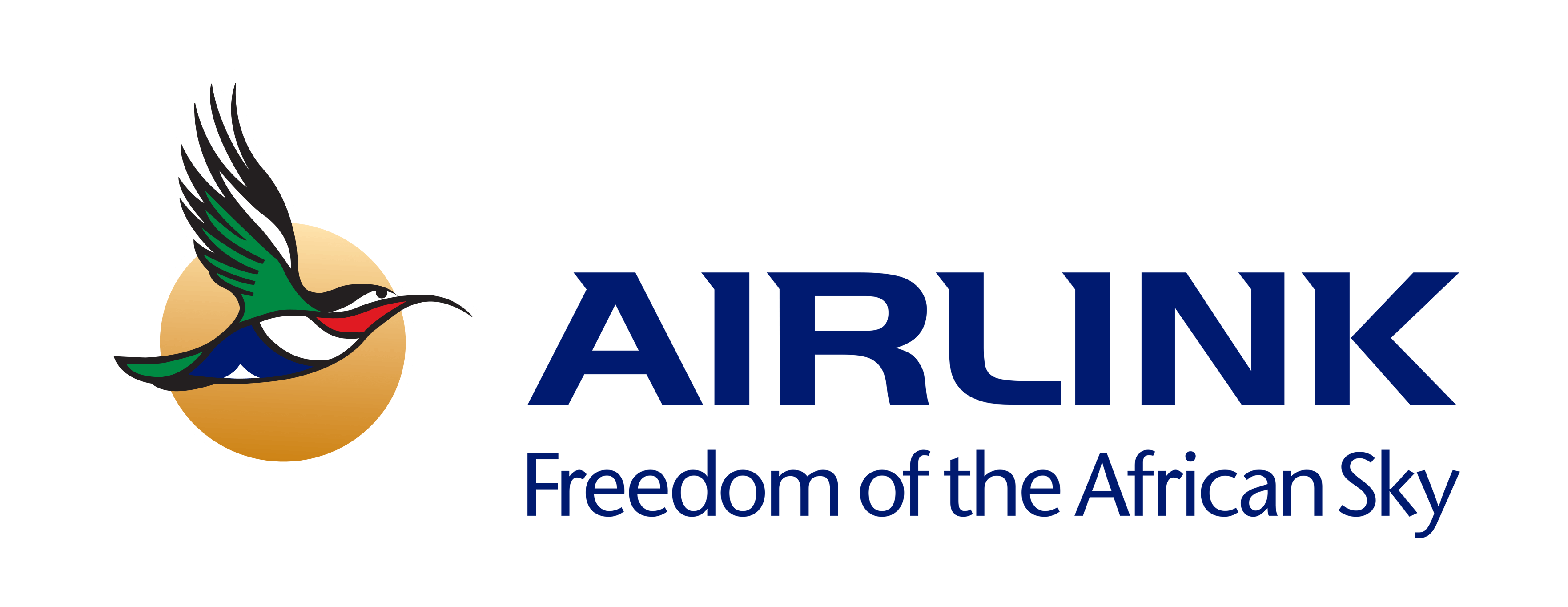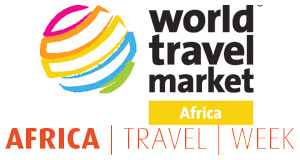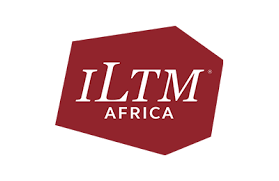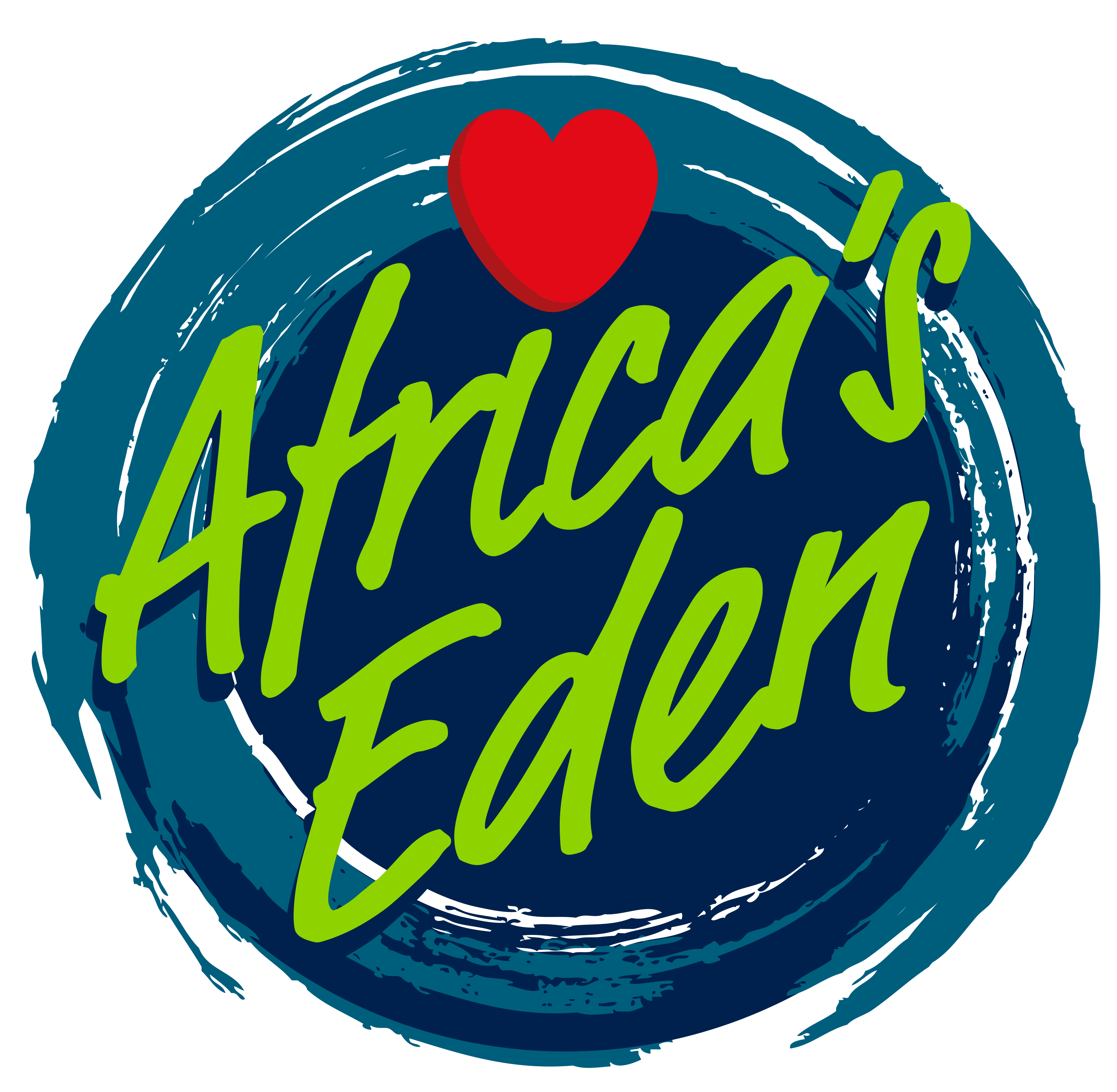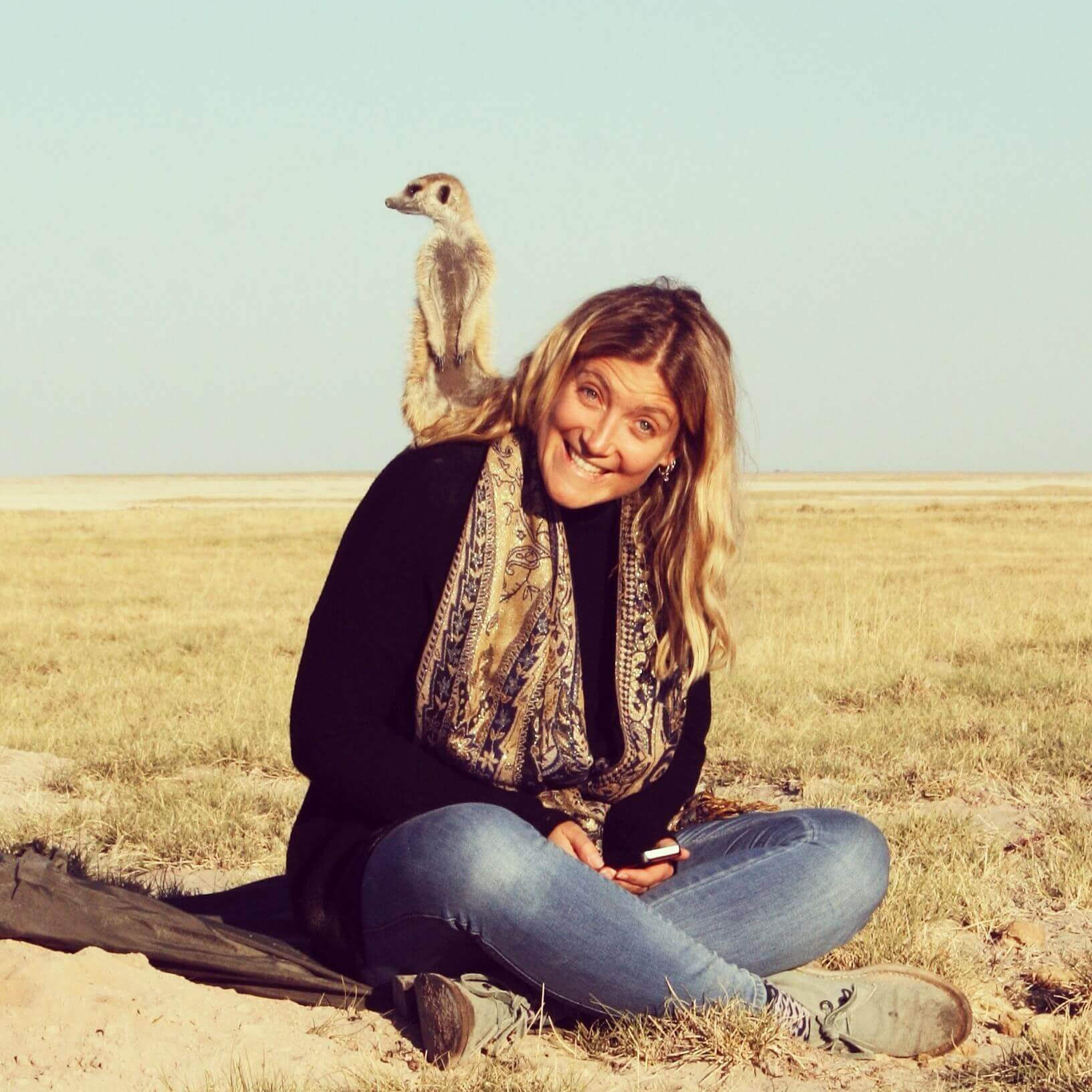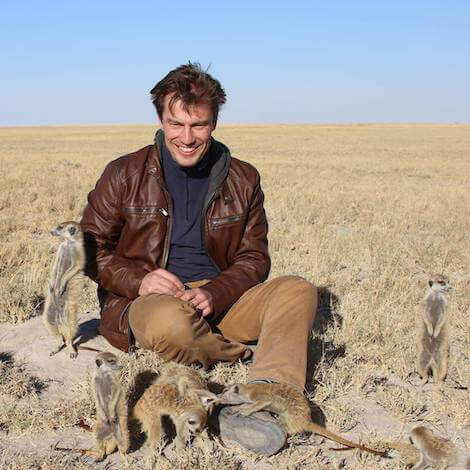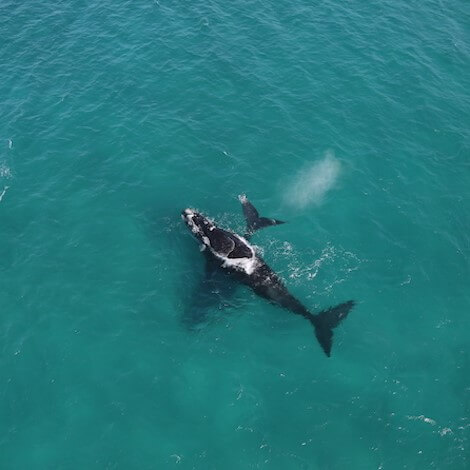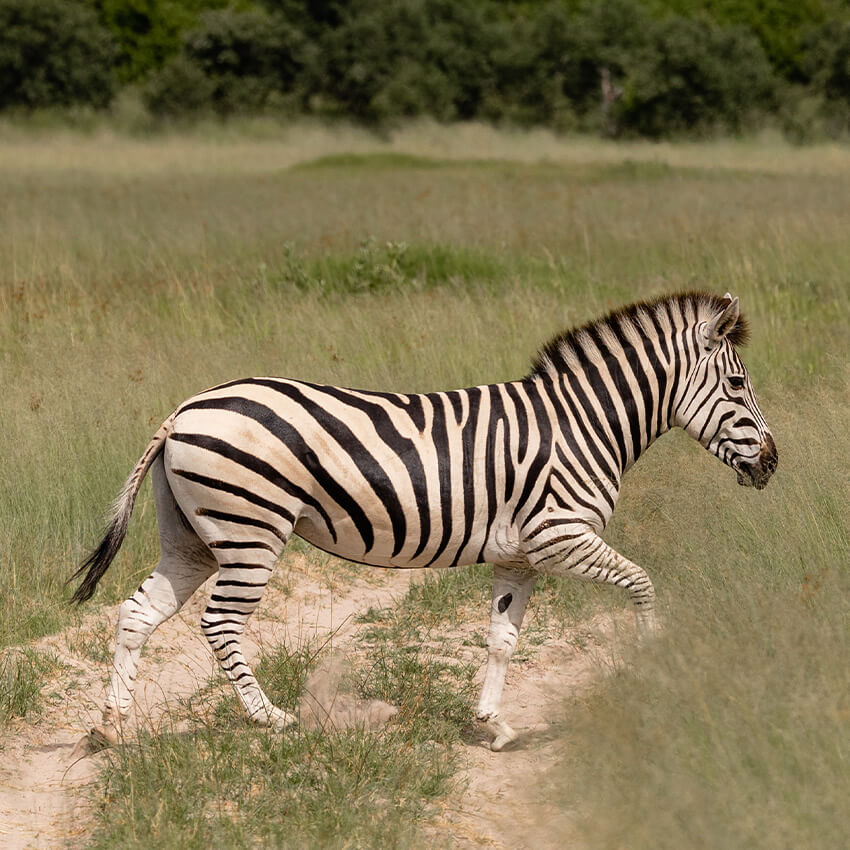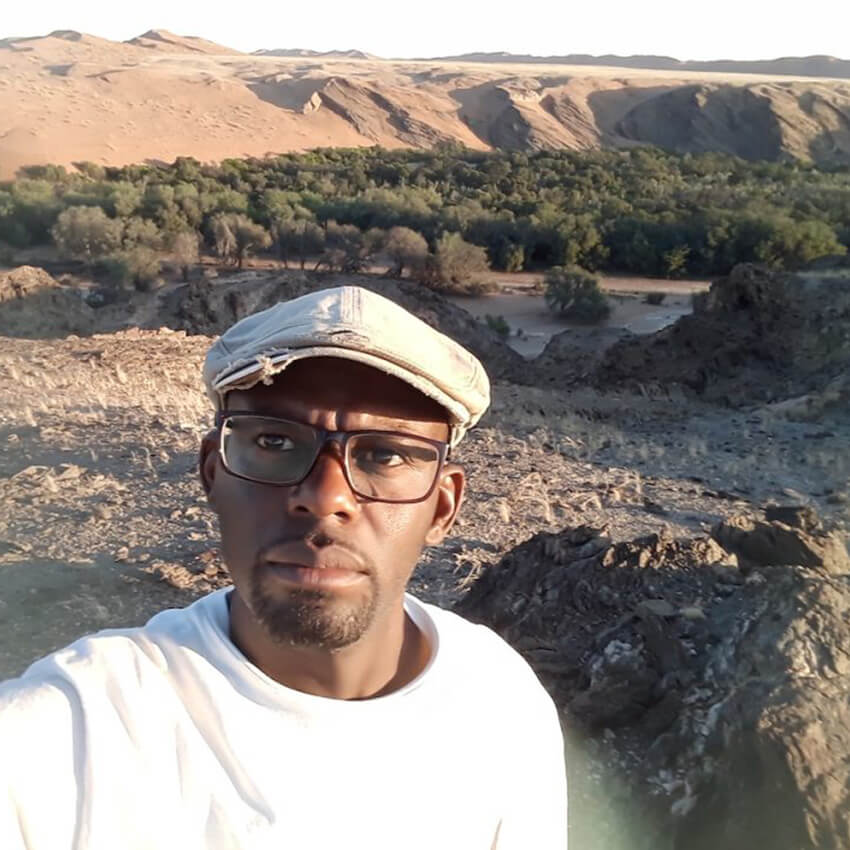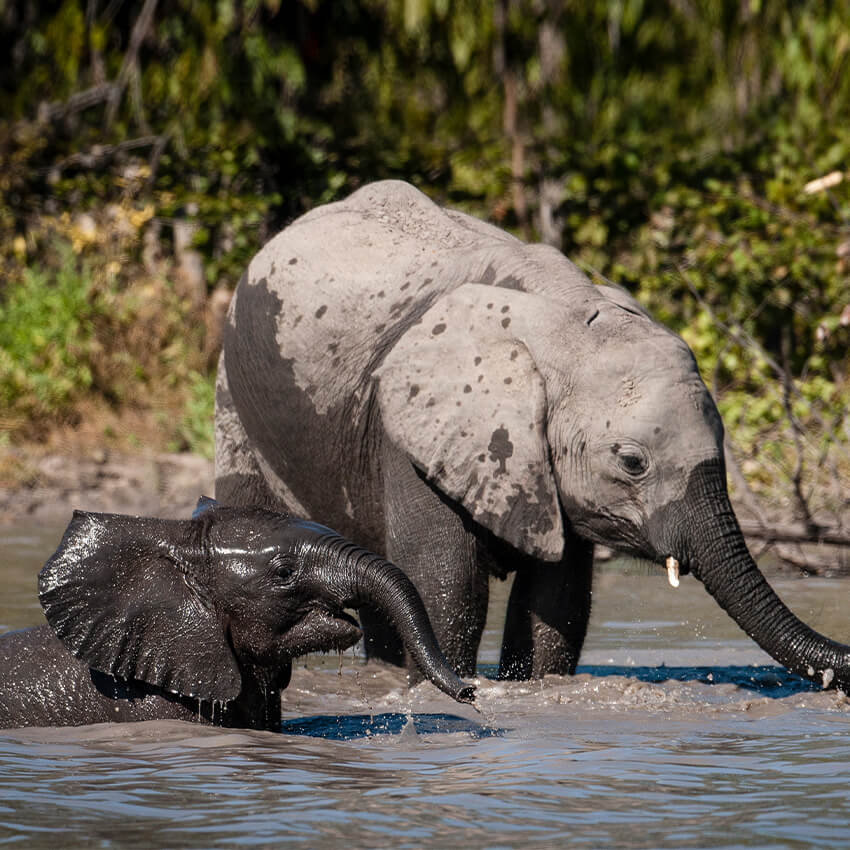Active
Popular
Meet Our Characters: Super Sande
 Scott Ramsay
Scott Ramsay
 October 18, 2020
October 18, 2020
In a land as flat as the Makgadikgadi Pans, it’s almost impossible to miss Super Sande. At six foot four and with shoulders almost as wide, he’s a baobab tree of a man and a veritable landmark on the immense landscape of northern Botswana.
We’re standing on Ntwetwe Pan, the ancient lakebed that forms the western part of the Makgadikgadi Pans.
Cathedral cumulonimbus block the sun, and I lose my sense of direction. It’s like being in the middle of the ocean, except, of course, there’s no water – just flat, salty, dry earth as far as I can see.
“People used to come here for the great nothing,” Super tells me. “But this place is actually the great everything. There is so much life.”
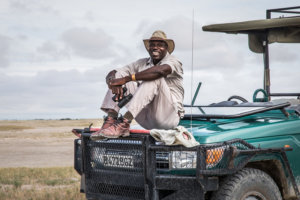
Bat-eared foxes pop their heads up from the ground. Like little yodas from Star Wars, they swivel their goofy ears.
“They use their ears like radars to pick up the tiniest sounds of insects in the ground,” Super tells me. “Once they get hold of it, they’ll chew it up at a rate of ten bites per second, with 50 sharp little teeth. They look cute, but they’re vicious.”
Next up is a black korhaan, a bird, which Super tells me, can go without drinking water for up to 9 months. The males will hold on to their territories, no matter how dry it gets, so that they can attract a female.
Then there are the zebras that are walking across the pan, moving from one grassland to another. Hundreds of them walk determinedly across the huge horizon.
“They’re here for the nutritious grasses that grow during summer rains,” Super explains. “The minerals on the pans means that zebras can get twice or three times as much nutrition from the same amount of grass than they can in the Okavango Delta.”
In summer, up to 70 000 zebras walk to the Makgadigadi Pans from elsewhere in Botswana, along with about 10 000 wildebeest, springbok and hartebeest. It’s the second-biggest congregation of herbivores in Africa, after the huge herds of the Serengeti.
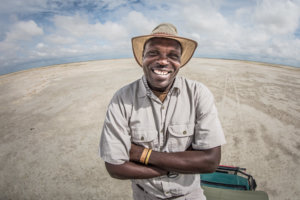
“A zebra is not just a zebra,” Super tells me. “It’s his story that is important. Why are they here? Where are they going? What lives do they lead? What do they have to do to survive?”
“There are stories everywhere here. Like us humans, every individual animal has its own story. Every tree, every sunset. All their stories are part of every other story. They are all linked.”
Super has his own story, and it too is linked to the land, the animals – and Botswana itself. In fact, Super’s own story tracks Botswana’s closely. Both have risen from humble origins to international acclaim.
At the country’s independence from Britain in 1966, semi-arid Botswana was the second-poorest country on earth, and the poorest in Africa. The country had few resources, with little obvious potential for development.
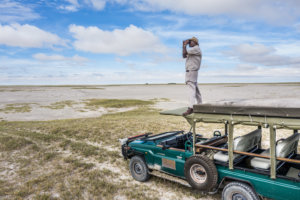
Most of the country is underlain by porous Kalahari sands, and rainfall is sporadic and unreliable, making large-scale agriculture almost impossible.
What it did have, however, was wildlife, and huge wilderness areas, something for which Botswana has become world famous, even if back in the 1960s, African safaris weren’t as popular as they are today.
Then diamonds and minerals were found, and along with a stable democratic government, the country slowly but surely emerged from the shadows to be a shining light, with one of the strongest currencies and most resilient economies on the continent.
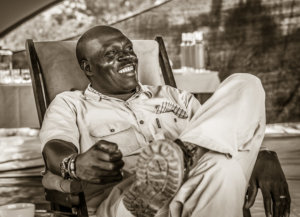
Like Botswana, Super was born into modest circumstances, in a small village about an hour’s drive north of Francistown. His mother died three years after his birth, and his father six years after that.
“I was raised by my grandmother,” Super, now 46, tells me. “Her name is Mayezi Jika, and she is now 90, and lives in Francistown. I owe her so much.”
Super left school in 1986, doing odd-jobs as a labourer. Then in 1989 when Super was 17 years old, he met Jack Bousfield, Ralph’s father who started Jack’s Camp in the Makagdikgadi in 1962.
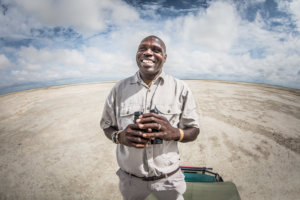
He worked at the Bousfield’s animal orphanage in Francistown, looking after injured or abandoned creatures.
In 1991 Super moved to work alongside Jack’s son Ralph, who was by then running the safari camps.
“When I left Francistown to go work with Ralph, my family didn’t understand at all,” says Super. “They were wondering why I wanted to go live in the bush!”
“Then after some time, when I came home, I explained to them what I actually did. I told them about the guests who came from all over the world. I told them about Ralph and the team at Jack’s. And they saw I was earning good money, so they were happy for me and supported me.”
Ralph remembers when Super started working in camp. Back then, he was known for his short stature and big hairstyle. “He’s not so small anymore,” Ralph laughs. “And he doesn’t have much hair either.”
But above all, Super quickly became known at Jack’s Camp as the man who would do anything that was required: plugging flat tyres, unblocking toilets, sowing up tents, pulling Land Cruisers out the mud, fixing gearboxes, laying bricks, building septic tanks, installing water pipes…
“Super would always be ready to help,” says Ralph. “I’d get back to camp late at night, and Super would be waiting there in the dark, to see if he could do anything.”
“Super is beyond extraordinary. He was relentless. He’s done everything that most people don’t want to do. They don’t want to be in the trenches, but Super is there in the thick of it.”
Almost three decades later, Super still likes to do everything himself, “to make sure it’s 100 percent. Fix it yourself. That’s what I learnt from Ralph.”
“Nowadays it’s a bit easier, because we have a bigger team,” Super says, “but I still like to make sure for myself that everything is perfect for the guests.”
Super’s reputation grew as quickly as his height, and soon the gentle giant was entrusted with driving guests into camp from Gweta. And he learnt as much as he could from Ralph, who was already one of Africa’s leading guides.
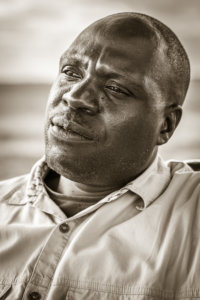
“Ralph introduced me to this world. Before I met him, I had no clue about conservation, tourism or people from the western world.”
Super had qualified officially as a guide in 1994, and started leading mobile safaris on behalf of Ralph into the depths of the Kalahari.
“I’d take guests for weeks at a time into the Central Kalahari, into the Okavango, into western Botswana. We explored the most remote parts of this country without radios or cellphones. It is a huge responsibility,” Super told me.
“When things go wrong, it’s important to maintain calmness. All the guests are looking at you to fix the situation. That’s the most important thing I learnt from Ralph. To always stay calm.”
Today Super heads up the guiding team at Uncharted Africa, training the company’s guides and looking after VIP guests that come to Jack’s Camp.
“Presidents, royalty, celebrities, people like that,” Super says nonchalantly, while peering through his binoculars at a vulture in the sky.
Super also is responsible for looking after researchers who come to the Makgadikgadi Pans.
“I take PhD students out into the field here, guiding them. They think they know a lot, but they also don’t know things I know about. So we learn from each other.”
As Botswana’s reputation has grown, so has Super’s. He is regularly asked by the government to represent Botswana at international tourism events, to give talks on the country’s success in wildlife conservation and tourism.
He remembers his first trip to the UK with Ralph in 1997, and boarding the Jumbo jet at Gaberone.
“I almost died from shock,” Super laughs. “There were hundreds of people on the plane, and all their bags. I was really worried about the weight of the plane. How’s this thing going to take off?”
“And how can it hang up in the air for eleven hours, without refueling? And what will happen if the pilot has a heart attack? Or falls asleep?”
“Then when we landed in Heathrow, there seemed to be more people than all the people in Botswana. If we see so many people here in this country, there must be an important person coming to visit. Like a president or king or something. Ralph just laughed and said it’s normal for Heathrow.”
Super is now a regular international traveler, but always looks forward to coming back to Botswana.
I ask Super about the changes that have taken place in his country – and Makgadikgadi Pans – in the past 30 years.
“Some change is good, some change is bad,” he says. “I’ve benefited from conservation and tourism. But other people in Botswana have benefited from mining, from diamonds, from cattle. What matters is that we find a balance between everything.”
“But what’s most impressed me most is how the wildlife has bounced back,” he says.
“When I started working here in the 1990s, there were only 15 000 zebras and we couldn’t get closer than 500 metres. Now there are more than 70 000, and everything else has come back too. The lions, the cheetahs, bat-eared foxes, jackals, mongooses and meerkats”
“Some people take it for granted, but I never will. These animals and this company have given me a life.”
“I started out as a labourer, now I’m a guide. The staff at Jack’s Camp go back to their homes, and their families see the benefits of conservation and tourism.”
“Companies aren’t the answer to Botswana’s challenges. It’s the people and the staff who make it work. Every individual person forms the foundation of this country. All of us must do our jobs as best we can.”
Special Offers
Our special offers are designed to help you experience everything southern Africa has to offer whilst also saving some all-important pennies. Whether you’re about to embark on a once-in-a-lifetime solo trip, or are celebrating a special occasion, have a peek at our offers and see what could be in store for you.
